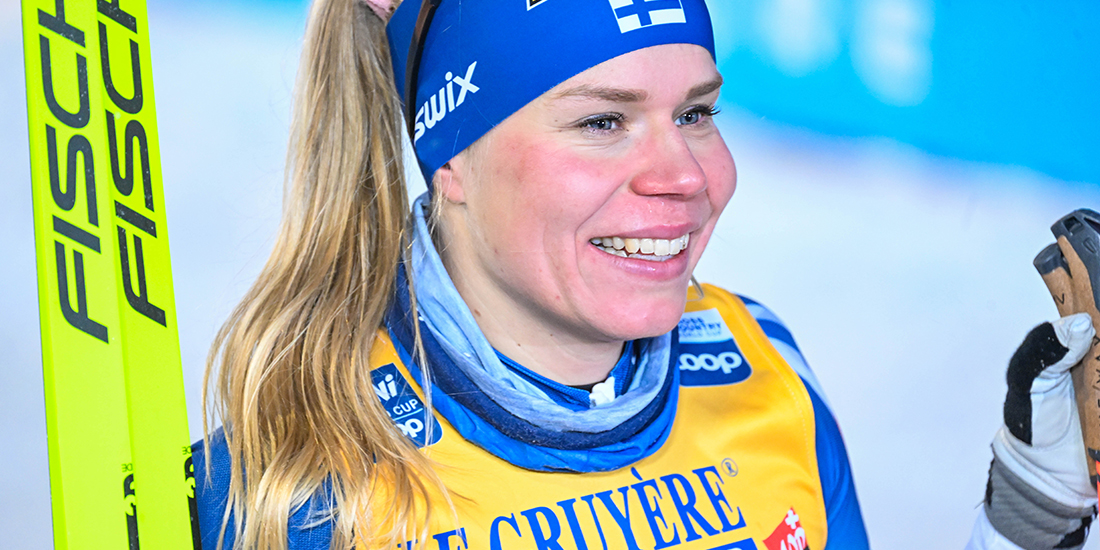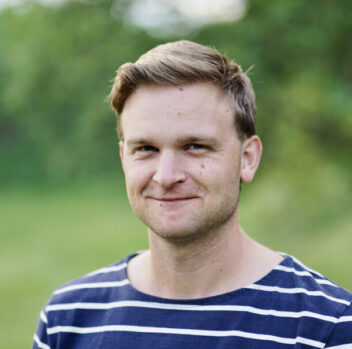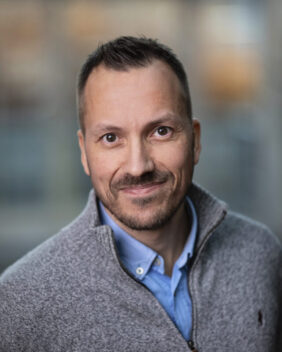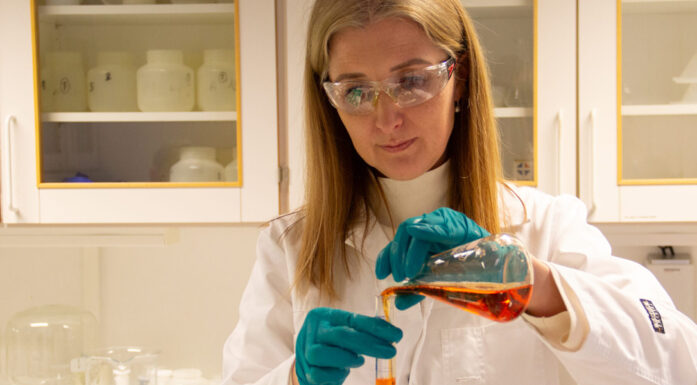Is it possible to be a mum and world champion at the same time?
Elite sports women who want to have children face a number of dilemmas: how will motherhood affect their performance and body? Finances? Family life? Researchers have taken a closer look.
More and more sportswomen are trying to combine pregnancy and motherhood and a successful career in elite sports. Prominent examples include Shelley-Ann Fraser-Pryce, who won the 100m gold at the 2019 World Athletics Championships in Doha, and Serena Williams’ four Grand Slam finals in tennis.
“But it is still much more common for women to abandon their elite sports careers after motherhood,” says Max Bergström, a PhD candidate at NTNU.
He and several researchers at NTNU and the Swedish Winter Sports Research Centre have interviewed 13 Norwegian and Swedish cross-country skiers about their thoughts on becoming and being a mother – while at the same time fighting to become the best in the world.
The study has been published in the Women in Sport and Physical Activity Journal.
- You might also like: Four world cup medals – and a baby
Remain childless or miss out on medals?
Bergström says that many of the women they interviewed struggled with an internal conflict. They were on their way to reaching the pinnacle of their sporting careers, while their biological clock was ticking.
Participants who had passed the age of 30 felt the dilemma: how long can I wait before having children? And what consequences will pregnancy have?
“Several of the participants in the study, both those with and those without children, said they would prefer to achieve their greatest sporting goals before having children,” Bergström says.
If women postpone having children, they risk ending up childless. Some of the study participants chose to have children and said they had come to terms with the fact that they may not get back to their previous fitness after pregnancy.
However, the study shows that five out of seven women who had children during their careers managed to return to the same competitive level as before pregnancy, or became even better.
- You might also like: Exercise prevents gestational diabetes in pregnant obese women
Do or die
How will pregnancy affect a career in elite sports? Women said that uncertainty about the answer fueled doubts in connection with decision-making. None of the study participants knew how their contracts or terms of employment might be affected if they became pregnant.
“A lot of people were worried about losing sponsors, salaries and maybe even their place on the team,” Bergström said.
Study participants had varied experiences: Some said that they were pleasantly surprised by the support they actually received after they announced their pregnancy. Others, however, had had different experiences.
“A characteristic common to women who continued their careers the longest as mothers was that they had the opportunity to support themselves through their sport, and had access to various support functions such as physiotherapists, medical specialists and their own training programme. They also received help from family when it came to childcare,” Bergström said.
Strenuous exercise and foetal health
The women in the study who chose to become pregnant during their careers faced a new challenge: how intensely can I train when pregnant? They did not want to put their baby’s health at risk, but wanted to maintain as much of their physical fitness as possible during pregnancy.
They felt that they did not have access to good information about training for pregnant elite athletes, and they encountered health professionals who did not understand the demands of elite sports.
Nor did coaches, teams or sports federations have enough specific expertise about combining pregnancy and elite sports.
Bergström says that three of the seven participants in the study contacted other elite athletes who had been in the same situation for tips and advice. Only two of the seven received specific help through their team or sports federation.
Elite sports and family life
Elite sports means a lot of travel during the competition season, which also presented a dilemma: the women wanted to perform at a high international level in their sport, but also wanted to be a good mother.
“Many of the women felt guilty about spending a lot of time away from home,” Bergström said.
The study highlighted different solutions.
One woman tried to take her child to competitions and training camps whenever possible, and chose to stay home unless the trip was absolutely necessary.
Another participant stated that even though she was away from her baby for a few weeks, she spent a lot of time together with her child during the periods she was at home.
Some of the women even felt that family life had positive effects on their sporting careers. Life with children enabled them to view their performance from a wider perspective.
But the study also showed that some of the athletes ended their commitment to elite cross-country skiing so they could spend more time with family.
Poor communication
The researchers conclude that the women’s dilemmas are largely due to a lack of knowledge, communication and practical support from their trainers and teams.
“It is striking that none of the women had discussed the issue of parenthood with their coaches, team leaders or other support functions before they became pregnant. This exacerbates the uncertainty about how the conditions for practising elite sports are affected during pregnancy, and the years that follow,” Bergström said.
He says it is important that sports organizations start taking action.
“Among other things, they need to develop guidelines for the athletes who want to become mothers, and clearly communicate what kind of help and support they can get from sports doctors and physiotherapists during and after pregnancy,” he said.
Stig Arve Sæther, an associate professor in Sports Science at NTNU, was also involved in the study. He says there’s an increased interest in research on female athletes, which is necessary and crucial for female athletes’ development opportunities. This type of specific knowledge may also help ensure better adaptations for female athletes.
The researchers are also interested in how male elite athletes view parenthood and their careers in order to see what similarities and differences exist between the genders.
About the study
A total of 13 cross-country skiers from Sweden and Norway participated. All were active at the international level or had competed on national teams or various long-distance teams.
The sample consisted of:
- Active athletes wanting to have children in the future (during or after their career).
- Active athletes with children.
- Previously active athletes who had children during their careers.
Athletes who did not want children are therefore not represented in this research.
The average age of the participants was 35.9 years. Data were collected through semi-structured interviews and analysed through thematic analyses.
References
Max Bergström, Stig Arve Sæther, Guro Strøm Solli, Kerry McGawley: Tick-Tock Goes the Biological Clock: Challenges Facing Elite Scandinavian Mother-Athletes. Women in Sport and Physical Activity Journal, 21 August 2023.
https://doi.org/10.1123/wspaj.2022-0094
Max Bergström, Marlene Rosvold, Stig Arve Sæther: “I hardly have a problem […] I have my period quite rarely too”: Female football players’ and their coaches’ perceptions of barriers to communication on menstrual cycle Frontiers in Sports and Active Living, 23 March 2023
https://doi.org/10.3389/fspor.2023.1127207







